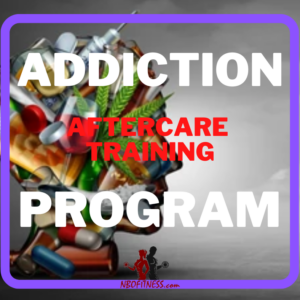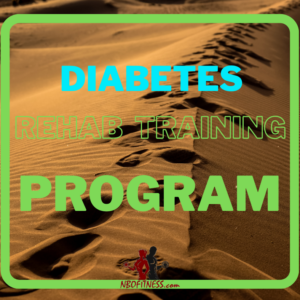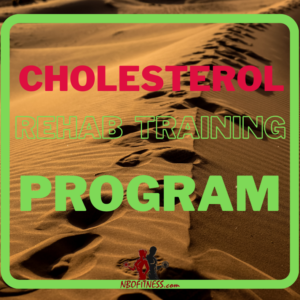
Cholesterol is a type of fat that is produced by the liver and obtained from certain foods. Obesity is a significant risk factor for high cholesterol levels, as excess body fat can lead to dyslipidemia, a condition characterized by abnormal lipid levels in the blood. Obesity is associated with elevated levels of LDL (bad) cholesterol and triglycerides, as well as reduced levels of HDL (good) cholesterol. Additionally, obesity is linked to insulin resistance, inflammation, and metabolic syndrome, all of which can contribute to dyslipidemia and increase the risk of cardiovascular disease.
Reviewed by Evans Mwaniki, PT
Introduction
Cholesterol is a fatty substance found in the blood that is essential for the body’s normal function. However, when cholesterol levels become too high, it can lead to serious health problems, including heart disease and stroke. At Nairobi Fitness Consulting, we are committed to helping individuals understand and manage their cholesterol levels through personalized exercise programs, nutritional counseling, and psychological support.
What is Cholesterol?
Cholesterol is a type of lipid (fat) that is produced by the liver and obtained from certain foods. It plays a vital role in building cell membranes, producing hormones, and synthesizing vitamin D. There are two main types of cholesterol:
Low-density lipoprotein (LDL) cholesterol: Often referred to as “bad” cholesterol, LDL cholesterol can build up in the walls of arteries, forming plaque that can narrow and block blood vessels.
High-density lipoprotein (HDL) cholesterol: Known as “good” cholesterol, HDL cholesterol helps remove LDL cholesterol from the bloodstream, transporting it to the liver for excretion.
Signs and Symptoms
High cholesterol itself does not typically cause symptoms, which is why it is often referred to as a “silent” condition. However, high cholesterol levels can contribute to the development of atherosclerosis, a condition characterized by the buildup of plaque in the arteries. Over time, atherosclerosis can lead to narrowed or blocked arteries, increasing the risk of heart attack, stroke, and other cardiovascular complications.
Treatment Options
The treatment of high cholesterol often involves lifestyle modifications and, in some cases, medication. Common treatment options may include:
- Lifestyle modifications: Adopting a heart-healthy lifestyle is essential in managing cholesterol levels. This includes following a balanced diet low in saturated and trans fats, engaging in regular medically monitored physical activity, maintaining a healthy weight, quitting smoking, and limiting alcohol intake.
- Medications: If lifestyle changes alone are not sufficient to lower cholesterol levels, medications such as statins, cholesterol absorption inhibitors, bile acid sequestrants, and PCSK9 inhibitors may be prescribed to help reduce LDL cholesterol levels and decrease the risk of cardiovascular events.
The Role of Obesity in Cholesterol
Obesity is a significant risk factor for high cholesterol levels, as excess body fat can lead to dyslipidemia, a condition characterized by abnormal lipid levels in the blood. Obesity is associated with elevated levels of LDL cholesterol and triglycerides, as well as reduced levels of HDL cholesterol. Additionally, obesity is linked to insulin resistance, inflammation, and metabolic syndrome, all of which can contribute to dyslipidemia and increase the risk of cardiovascular disease.
How Nairobi Fitness Consulting Can Help
At Nairobi Fitness Consulting, we offer a comprehensive approach to managing cholesterol levels and improving heart health. Our team of physiotherapists, nutritionists, and psychologists work together to provide personalized care and support to individuals at risk of high cholesterol. Here’s how we can help:
- Personalized exercise programs: Our physiotherapists can design medically tailored exercise programs to help individuals improve cardiovascular fitness, lower blood pressure, and manage weight. Regular monitored physical activity is essential in lowering LDL cholesterol levels and increasing HDL cholesterol levels.
- Nutritional counseling: Our nutritionists can provide guidance on adopting a heart-healthy diet that supports cholesterol management. They can offer practical tips for reducing saturated and trans fats, increasing fiber intake, and incorporating cholesterol-lowering foods into the diet.
- Psychological support: Making lifestyle changes to manage cholesterol levels can be challenging. Our psychologists offer counseling and support to help individuals set realistic goals, overcome barriers to behavior change, and stay motivated on their journey to better heart health.
Conclusion
High cholesterol is a significant risk factor for cardiovascular disease, but it can be managed through lifestyle modifications and, if necessary, medication. By addressing modifiable risk factors such as obesity through lifestyle interventions, individuals can lower their cholesterol levels and reduce their risk of heart disease and stroke. At Nairobi Fitness Consulting, we are dedicated to empowering individuals to take control of their cholesterol levels and improve their heart health through personalized exercise programs, nutritional counseling, and psychological support. If you or someone you know is concerned about high cholesterol, don’t hesitate to reach out to us today for personalized care and support.
Our concierge (at home) team of medical personnel, physiotherapists, nutritionists and psychologists, allow you to participate in personalized therapeutic exercises, nutrition and psychological counseling sessions from the comfort of your own home at the time of your choosing, making it convenient for you and your family. Feel free to email us at [email protected] or call us via +254-725-251930 to book an appointment with us at Nairobi Fitness Consulting for your curated and guided prescription and start living your best life.










